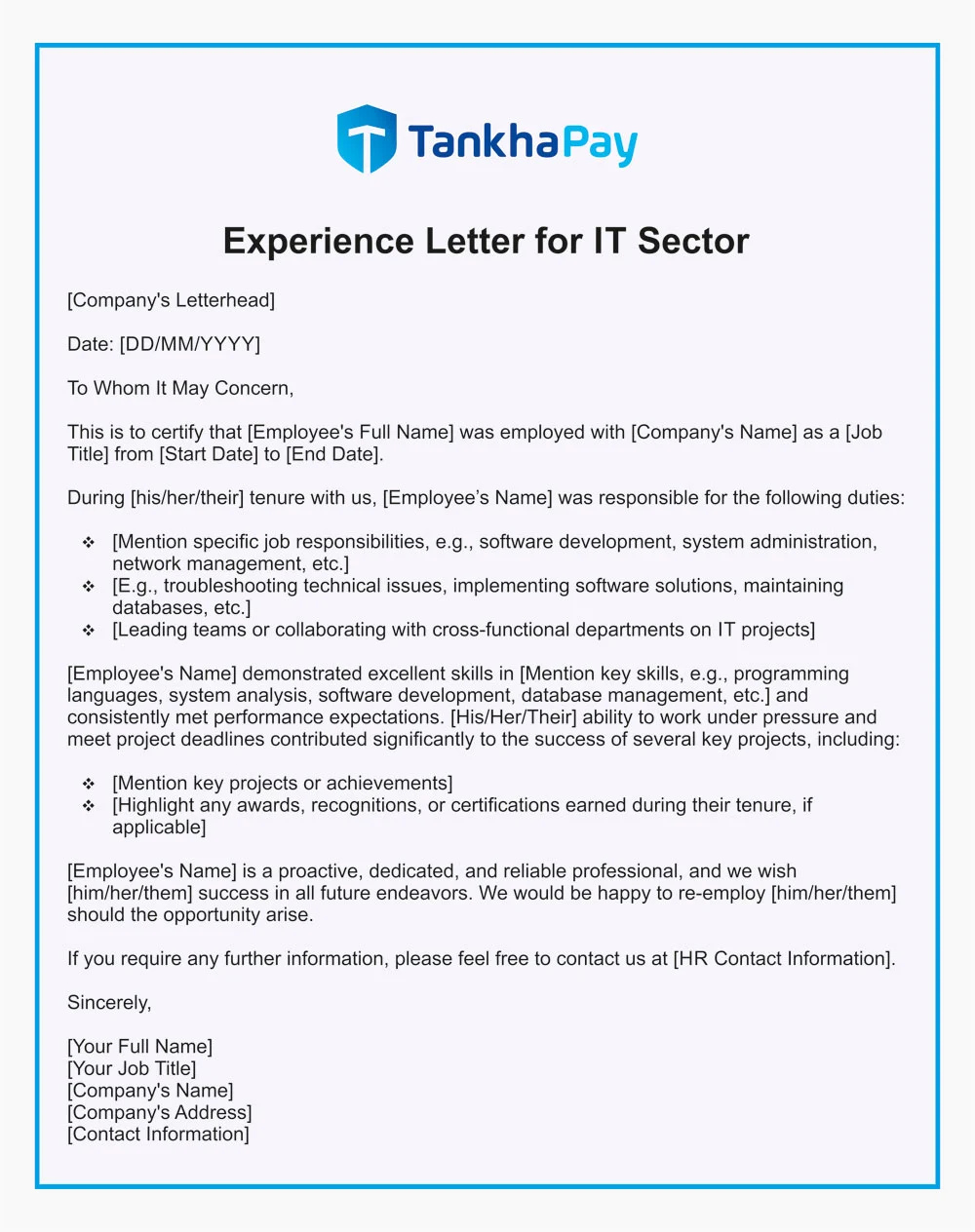Thorough Legal & Practical Guide
An Experience Letter is one of the significant documents that authenticate an employee's work experience, skills, and contributions towards an organization. It is very important in career progress, future employment, and even for immigration purposes. But what happens if a company does not want to issue it? Can an employer legally refuse an experience certificate letter? Here's a comprehensive guide on the legal aspect, HR policies, employee rights, and alternative means of proving work experience.
Legal Perspective: Is it Possible for an Organization to Legally Deny an Experience Letter?
Experience Letter is no more a letter of formality for the most of the countries of the world. Instead, it has become acceptable and employers are legally liable to provide such document. However, laws vary from country to country, as you shall see below:
Countries Where the Employers Are Legally Duty-Bound to Furnish the Experience Letter
India: Labor laws make provisions for providing the employee with a relieving letter and an experience certificate letter while resigning.
Germany: According to law, the employer must provide the employee with an Arbeitszeugnis-work certificate if demanded.
France: Labor code specifies that employees have the right to request work certificate.
United Arab Emirates: UAE labor law dictates that employment certificates must be provided by the company upon demand.
When the Employer Refuses to Issue an Experience Letter:
Outstanding Dues or Litigation: If the employee has any outstanding dues with the company.
Disciplinary Measures: Disciplinary measures will make it a bit difficult for the employees to get an experience letter.
No Proper Exit Process: When the employee quits the job without giving any notice period.
If the company does not provide you with the experience letter format, you are fully entitled to go to the labor department and file a complaint against them.
HR & Employer View: Why Companies Refuse Experience Letters?
The employer may even deny the release of an experience certificate letter by various reasons given below:
Strict Company Policy- Many organizations carry out strict policy about the releasing of experience certificates.
Employee vs. Employer Malpractice- when an employee would leave with an issue then his employer's issues would be undermined.
Lack of Documentation during the employment term or performance within the employer is in hand. End.
Using a standardized form of experience letters to avoid an issue.
Done on time within the leaving staff to ensure it does not make a bad remark about the firm's brand image.
Employee Guide Step-by-Step on How to Obtain Experience Letter
1. Formally Apply for Experience Letter
Write a formal application to HR or reporting manager.
Attach a polite and professional email format.
Indicate key points such as your designation, tenure, and reasons for seeking the letter.
2. Follow-Up
In the event that after a week of sending your mail, no response was received, initiate sending reminder emails .
Escalate the case to higher management as and when necessary.
3. Litigation In Case Of Rejection
Seek guidance from a labor lawyer.
If necessary, lodge a complaint at the labor department.
Case Study & Real-Life Examples: When Corporates Refused Experience Letters
Case Study 1:IT Professional's Legal Battle
An IT employee in India was refused an experience certificate letter due to disputes with HR. He lodged a complaint with the labor court, which declared in his favor, and the company had to issue the letter.
Case Study 2: An Alternative Proof of Experience Saved an Offer
After the previous employer of a marketing executive in UAE refused to provide an experience letter format in MS Word, the executive produced a salary slip and a resignation acceptance email, and the new employer accepted it.
International Laws & Employee Rights Comparison
1. United States & Canada: Experience letter is not mandatory by law of the employers but most of the employers do this as a courtesy professional.
2. UK: The employers would give work reference but are under no compulsion to provide experience certificate letter
3. Australia: Companies do experience letters generally, but there is no legislation which compels them to do so.
4. Middle East & Asia: Most countries require an experience letter to be issued when leaving the organization.
If you work for an international company, do some research on labor laws about that country for a better idea of your rights.
Freelancers & Contract Employees: Entitlement to Letters of Experience
These employees generally tend to complaint about the absence of proper documentation about the experience which they gain during work. Below are some means through which one can easily escape such situation.
Client End-Testimonials & Recommendation Letters
Invoice and payment documents
LinkedIn endorsements and portfolio
Freelance Employment Contract and agreements
Employers need not give experience letter in general format but through professional documentation one can write up his working experience.
How to Demand an Experience Letter Problem-Free?
To have an hassle-free procedure:
Apply for the letter at least two weeks before your last working date.
Offer to draft the experience letter format to HR.
Use a professional and polite tone.
Sample Experience Letter Format in Word
One can find these templates with Word online.
Myth vs. Reality – Separating the Common Misconceptions
Myth 1: The Employer Has to Give an Experience Letter Right Now
Reality: Most of the companies only issue a letter after processing them.
Myth 2. A Bad End Means No Letter of Experience Certificate
Reality. You can easily get an experience certificate letter as long as in most cases even if you separated on bad grounds.
Myth 3: No Letter Experience Certificate Means a Job Willn't be Get
Reality : Other proofs or evidence like paying slips and some employment contracts become valid.
Evidence of Work Experiences Except Certificates
If you are unable to get an experience letter format, you can use:
Salary Slips & Bank Statements
Offer Letter & Relieving Letter
Employment Contract Copies
Email Correspondence with HR
LinkedIn Endorsements & Recommendations
Work Samples & Client Agreements
Conclusion: Protect Your Rights & Secure Your Career
An experience letter is one of the most important career documents that confirms your professional journey. Though companies may deny its issuance under certain conditions, the employees have the right to work history and alternative methods to prove it. Knowledge of labor laws, proper request procedures, and maintaining professional relationships can help ensure a hassle-free exit from any job.
If your employer is not willing to give an experience letter, then look for legal representation or alternative proof of employment for the opportunities in your career.
Take away points:
Always ask for an experience letter professionally.
Be aware of the labor laws associated with your country with regard to an experience letter.
Have alternative documents ready if the employer will not issue the experience letter.
Always maintain a good exit without complicating things when trying to get your experience letter.
All the hurdles related to getting an experience letter format can be overcome by being updated and well-prepared.

















